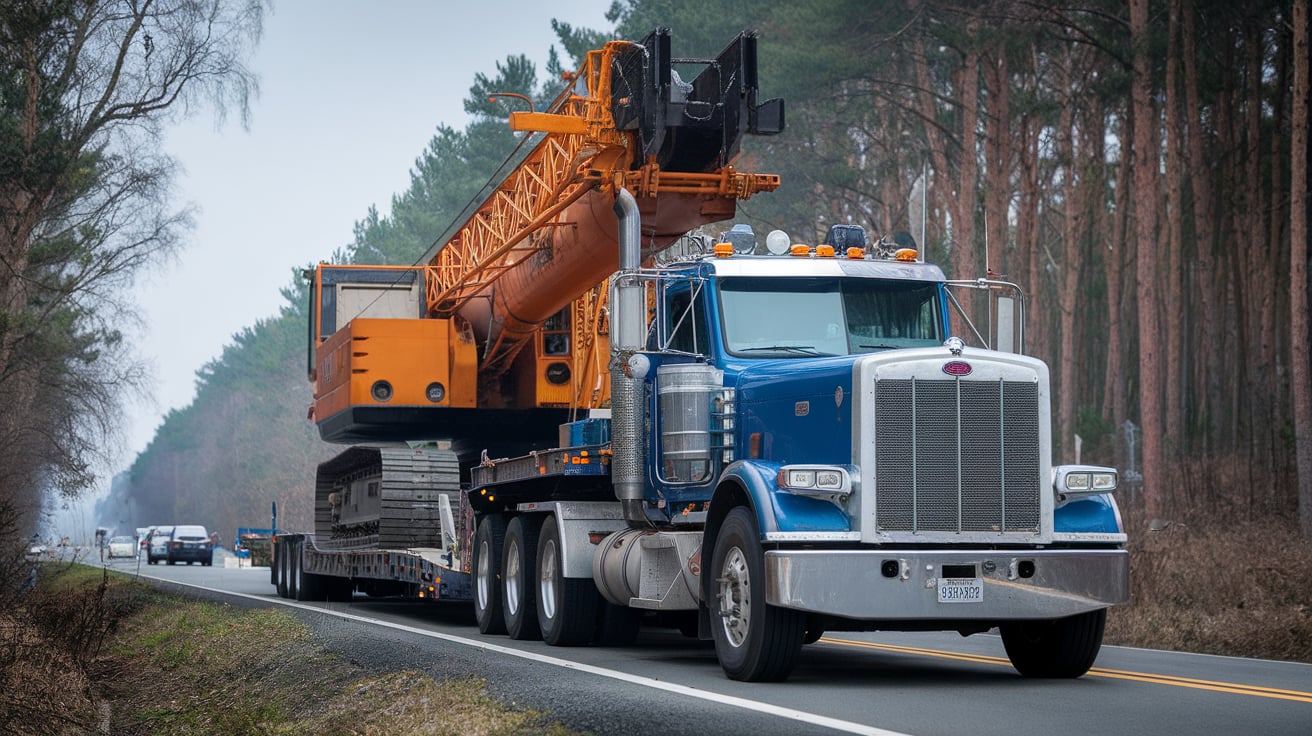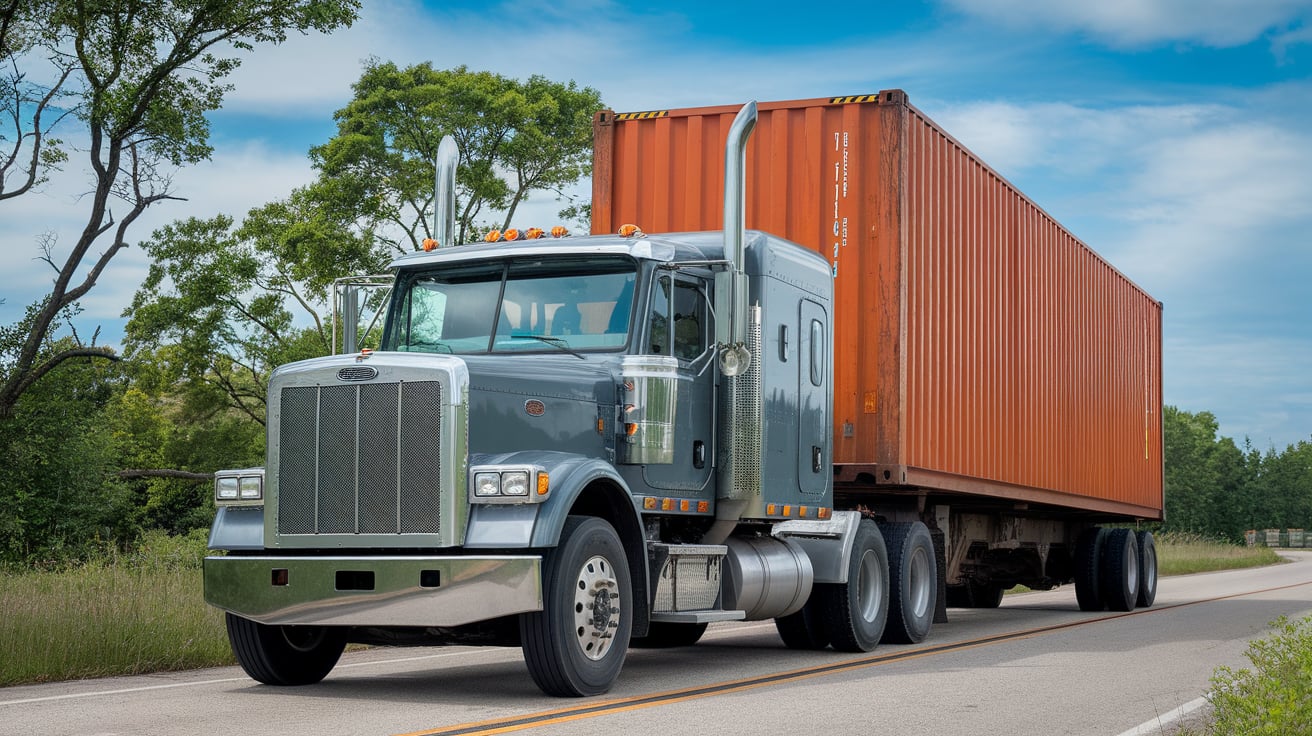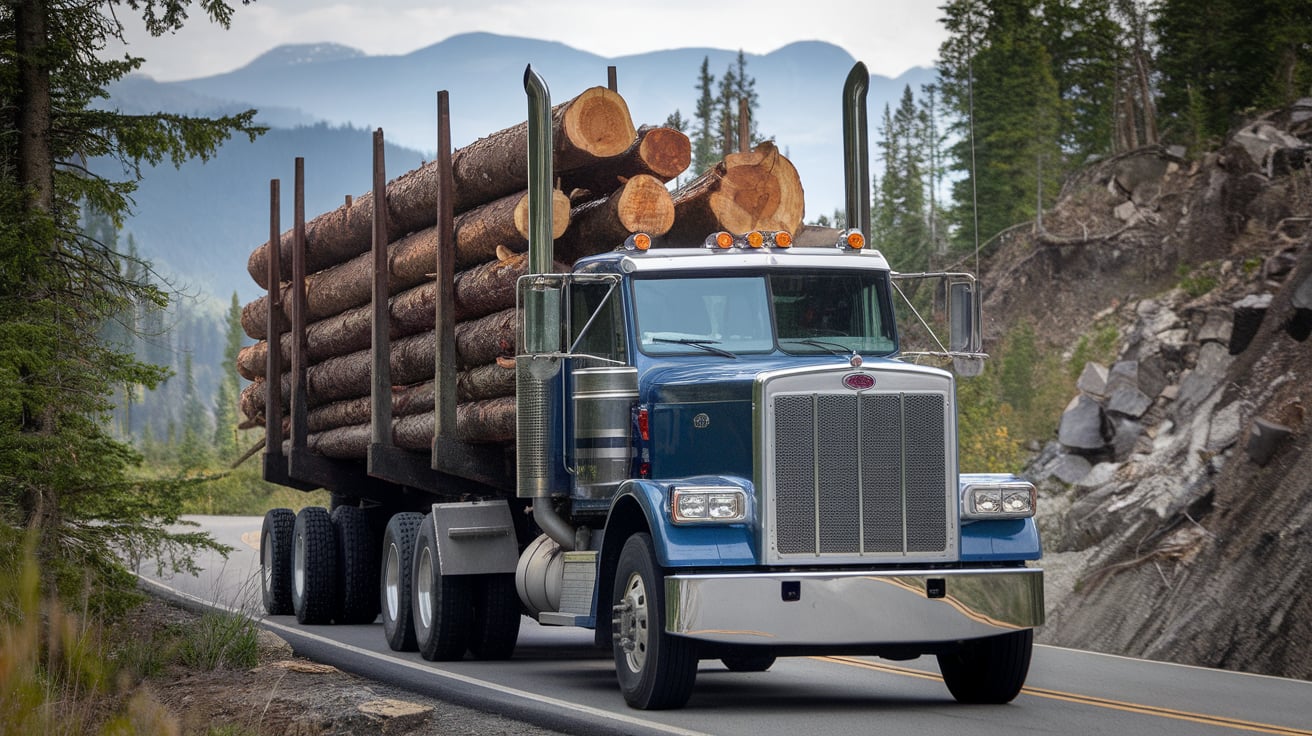Why Safe Trucking Practices Matter for Your Heavy Haul in Michigan
Freedom Heavy Haul can offer expedited Pickup and Delivery for any size shipment anywhere in the USA. Contact us today for No Hassle, No Pressure Pricing.
Transporting oversized or overweight freight requires careful planning, expert handling, and a strong focus on safety. At Freedom Heavy Haul, we understand the challenges that come with moving heavy loads across Michigan. Whether you need to transport industrial equipment, construction materials, or specialized machinery, ensuring the safety of your cargo, drivers, and other motorists is essential.
By following proper trucking procedures, we at Freedom Heavy Haul help you avoid delays, prevent accidents, and comply with state and federal regulations. Safety isn’t just about meeting legal requirements—it’s about delivering your freight securely and efficiently while protecting your investment.
Regulatory Compliance in Heavy Haul Trucking
Every state has different regulations regarding heavy haul transportation, and Michigan has some of the most specific guidelines in the country. Failing to comply with these regulations can result in significant fines, shipment delays, and potential liability issues.

Weight and Size Limits
Michigan allows heavier loads than most other states, with certain trucks permitted to carry up to 164,000 pounds on designated roads. However, these weight allowances come with strict axle load distribution rules to prevent excessive strain on roadways and bridges.
If your shipment exceeds the standard 80,000-pound gross vehicle weight or specific dimensional thresholds, it will require special permits. These permits help ensure that your freight is transported on roads that can handle its weight and size safely. We at Freedom Heavy Haul take care of these details for you, securing the necessary approvals so that your shipment moves without interruption.
Permit Requirements and Restrictions
Depending on the size and weight of your cargo, your shipment may require single-trip permits, annual permits, or superload permits. Each permit has different requirements, and failing to obtain the correct documentation can result in costly penalties.
Some roads and bridges in Michigan have seasonal weight restrictions, especially during spring thaw periods when roads are more vulnerable to damage. Before scheduling your heavy haul shipment, we make sure your route is clear and legally accessible.
Load Securement for Safe Transportation
Properly securing your cargo is one of the most important aspects of heavy haul trucking. Unstable or improperly restrained loads can shift during transit, leading to dangerous situations for both the driver and other motorists.
Equipment for Load Securement
Heavy haul cargo must be secured using chains, straps, and binders that are strong enough to handle the weight and force of the load. Additional equipment such as edge protectors, tarps, and bulkhead barriers may be used to ensure stability.
Different types of cargo require different securing techniques. For instance, large machinery may need cradle supports, while steel beams and other construction materials might require tightened binders and anti-slip mats. We at Freedom Heavy Haul assess the specific needs of your freight to determine the best way to secure it.
Best Practices for Weight Distribution
The way cargo is loaded onto a trailer significantly impacts the truck’s handling, braking, and stability. Uneven weight distribution can lead to trailer sway, increased tire wear, and difficulty steering.
To ensure smooth and secure transport, our team carefully loads each shipment to balance the weight evenly across the axles. This reduces strain on the vehicle, minimizes fuel consumption, and enhances overall road safety.
Vehicle Maintenance and Safety Inspections
Heavy haul trucks endure extreme stress due to the weight and size of the cargo they transport. Routine maintenance and inspections help prevent mechanical failures and keep both drivers and shipments safe on the road.

Critical Components Requiring Regular Inspection
Some of the most important truck components that require frequent inspection include:
- Brakes – The braking system must be in top condition, as heavy loads require a longer stopping distance. Any failure in this system can have severe consequences.
- Tires – Tires must be properly inflated and inspected for damage to prevent blowouts, which can be dangerous when hauling oversized freight.
- Suspension Systems – The suspension absorbs road impact, ensuring a smooth and stable ride. Worn-out components can affect the handling of the truck.
- Lights and Signals – Proper lighting and turn signals increase visibility, especially when transporting oversized loads that extend beyond standard trailer dimensions.
Pre-Trip and Post-Trip Inspections
Before each trip, drivers conduct a thorough pre-trip inspection to identify any mechanical issues. This helps prevent breakdowns on the road, reducing the risk of costly delays. After completing a haul, a post-trip inspection is performed to ensure that the truck remains in top condition for its next journey.
Driver Safety and Specialized Training
Not all truck drivers have the skills required to handle heavy haul shipments. Hauling oversized or overweight freight demands extensive training, experience, and attention to detail.

Techniques for Safe Driving
A skilled heavy haul driver understands how to:
- Make wide turns to accommodate oversized loads.
- Brake efficiently to compensate for the longer stopping distance required by heavy cargo.
- Adjust acceleration based on the load weight to maintain control.
- Monitor blind spots to avoid collisions with smaller vehicles.
Our team at Freedom Heavy Haul works with experienced drivers who are trained to handle all aspects of heavy haul transportation, giving you peace of mind that your cargo is in safe hands.
Fatigue Management and Hours of Service Regulations
Long hours on the road can lead to driver fatigue, which is a major cause of trucking accidents. The FMCSA enforces Hours of Service (HOS) regulations to ensure that drivers take proper breaks and get enough rest before continuing their journey.
We use Electronic Logging Devices (ELDs) to track compliance with these regulations, ensuring that our drivers stay alert and focused while transporting your freight.
Weather and Road Condition Awareness
Michigan’s unpredictable weather can make heavy haul transportation challenging. Snow, ice, rain, and strong winds require additional precautions to ensure safe travel.
Preparing for Extreme Weather Conditions
Our team checks weather conditions before each shipment and adjusts routes or schedules as needed. Winter shipments may require tire chains, extra braking distance, and slower speeds, while rainy conditions demand careful handling to avoid hydroplaning.
Alternate Route Planning
Construction zones, seasonal road restrictions, and weight-limited bridges can affect transport routes. We take the time to map out the best alternate routes so your shipment arrives without unnecessary delays.
Escort Vehicles and Special Safety Measures
For oversized loads, escort vehicles play a crucial role in guiding the shipment and alerting other drivers.
Functions of Escort Vehicles
Escort vehicles help ensure safety by:
- Providing real-time communication with the truck driver to navigate difficult areas.
- Warning other motorists about oversized loads ahead.
- Assisting with turns, lane changes, and road obstacles to reduce collision risks.
When Escort Vehicles Are Required
Michigan requires pilot or escort vehicles for shipments that exceed specific height, width, and length restrictions. Depending on the cargo, multiple escort vehicles may be necessary.
Technology for Monitoring and Safety
Advancements in technology have made heavy haul transportation more efficient and secure.
GPS and Route Optimization
Specialized GPS systems designed for heavy haul trucking help drivers avoid roads that cannot support oversized loads. This ensures that your freight reaches its destination efficiently and safely.
Dash Cams and Telematics
We at Freedom Heavy Haul use dash cams and telematics systems to monitor vehicle performance, improve driver safety, and provide real-time tracking for our customers.
Final Thoughts
Safe trucking practices are essential for transporting your heavy haul shipment without delays or complications. At Freedom Heavy Haul, we prioritize safety at every stage—from securing permits and following regulations to maintaining our fleet and training experienced drivers.
When you choose Freedom Heavy Haul, you can trust that your freight will be handled with expertise and care. Whether you need to move machinery, industrial materials, or oversized equipment, we are here to ensure a secure and efficient delivery. Contact us today to discuss your heavy haul transportation needs!







